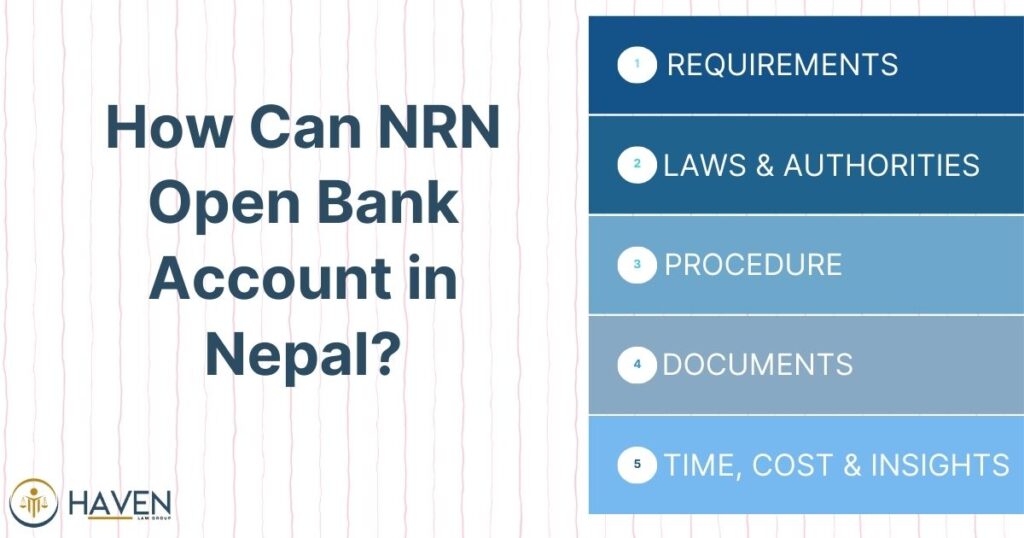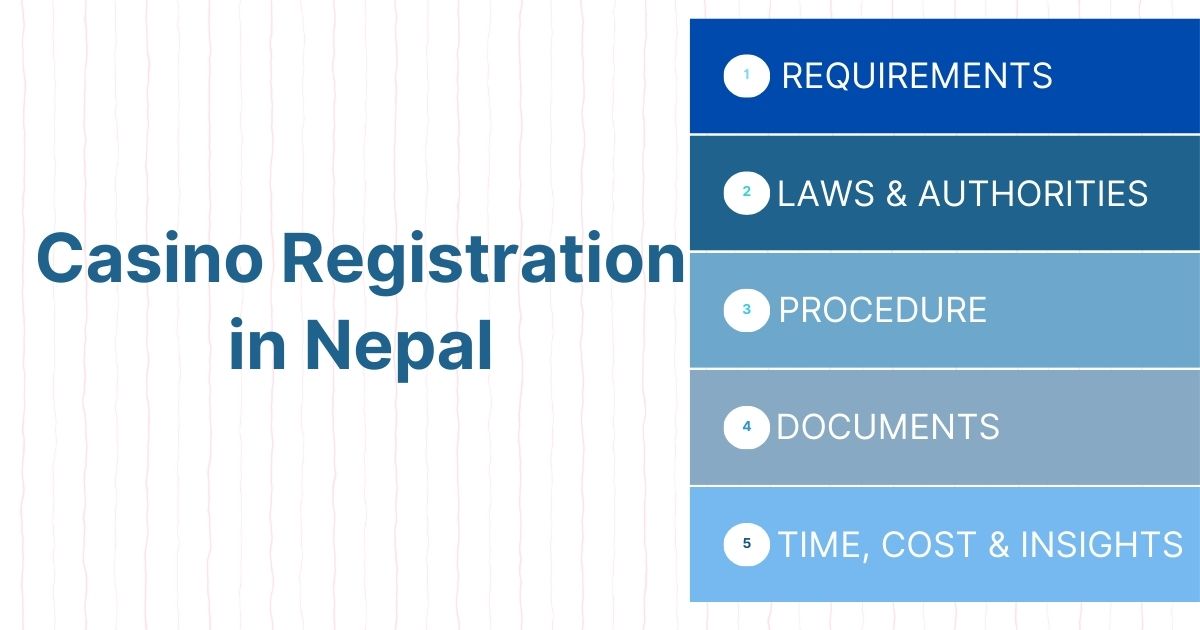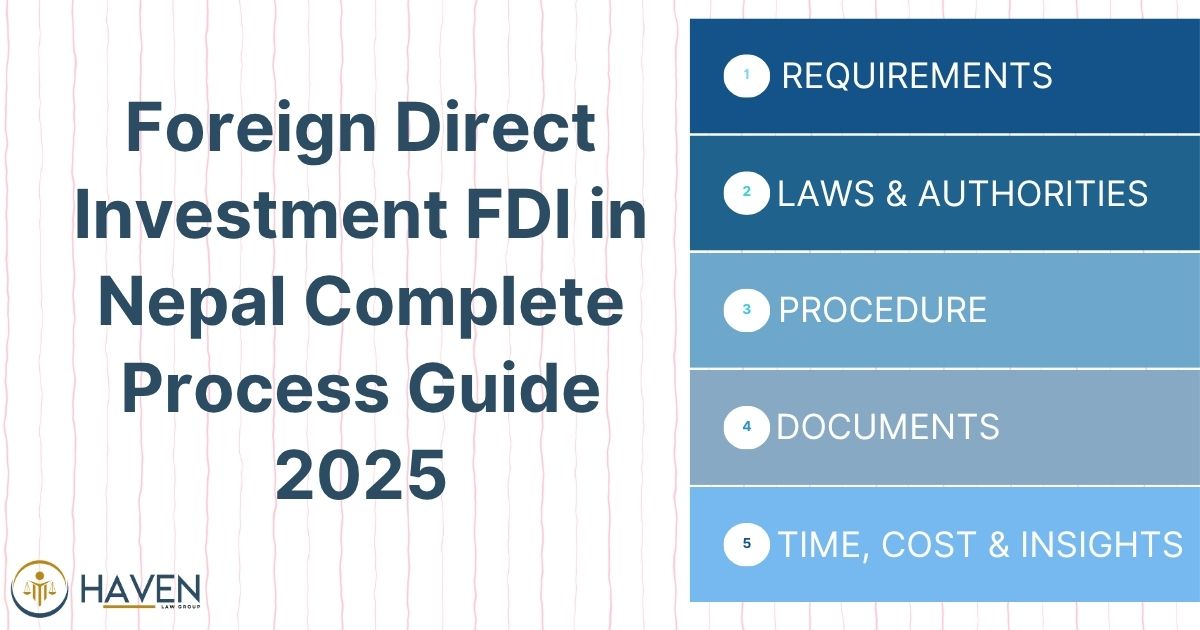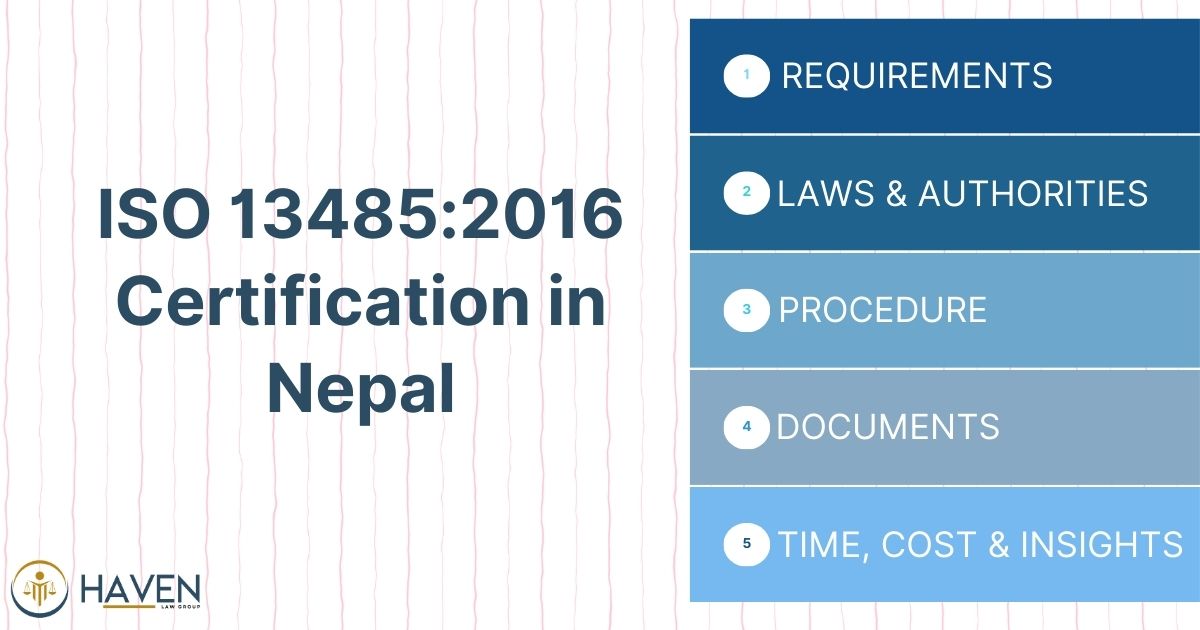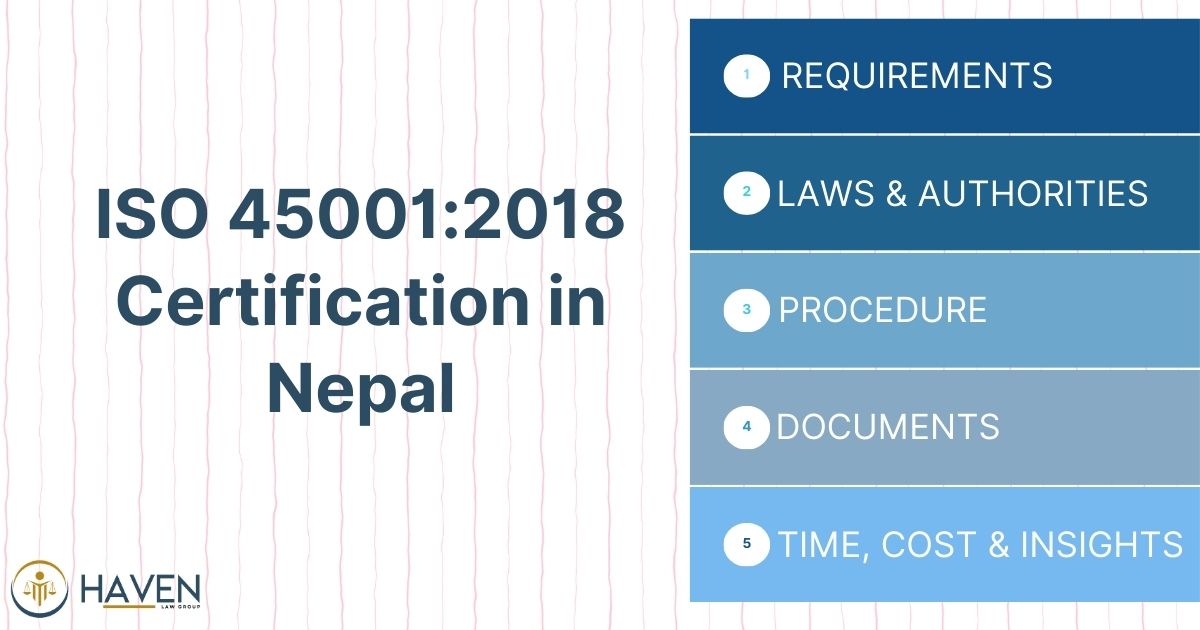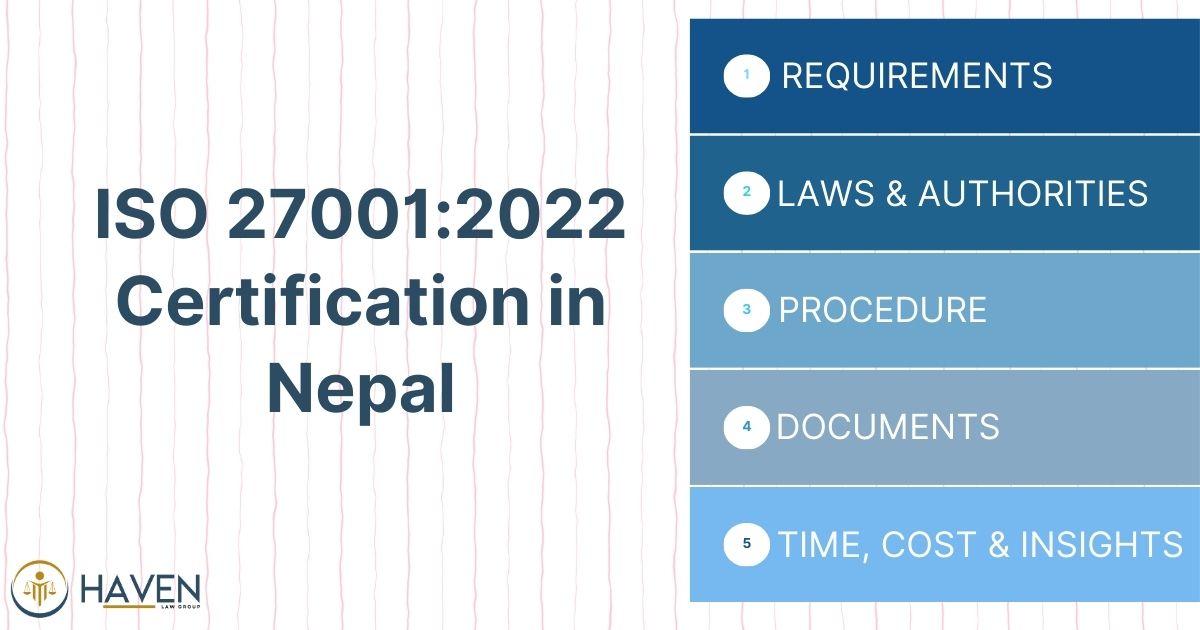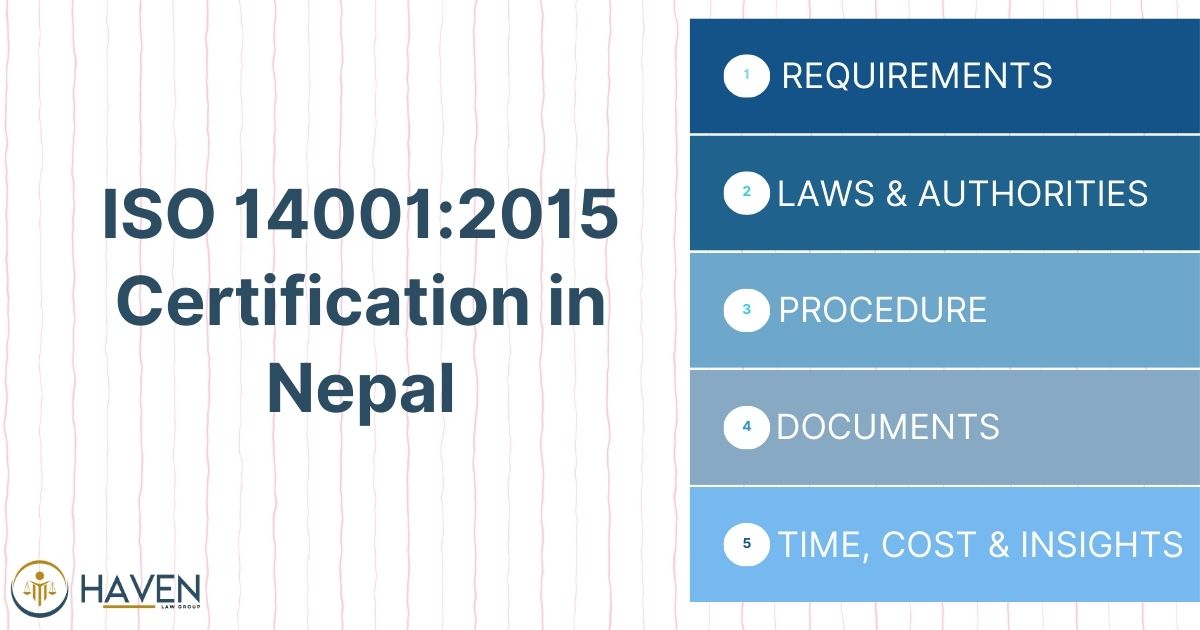Can NRNs open bank accounts in Nepal?
Non-Resident Nepalis (NRN) can open bank accounts in Nepal. The Nepal Rastra Bank (NRB) has established guidelines allowing NRN to maintain accounts in Nepali banks. This facility enables NRN to manage their finances, investments, and remittances in Nepal.
The Foreign Exchange Regulation Act, 2019 (2076 BS) provides the legal framework for NRNs to open and operate bank accounts in Nepal. These accounts offer NRNs a secure way to hold funds in Nepal, facilitate transactions, and participate in the country’s financial system. NRNs can choose from various banks operating in Nepal, including commercial banks, development banks, and finance companies, to open their accounts.
What type of accounts can NRN open?
NRNs have several options for bank accounts in Nepal:
- Non-Resident Nepali Savings Account (NRN Savings Account)
- Non-Resident Nepali Fixed Deposit Account (NRN Fixed Deposit)
- Non-Resident Nepali Current Account (NRN Current Account)
- Foreign Currency Account
- Non-Resident Nepali Remittance Account
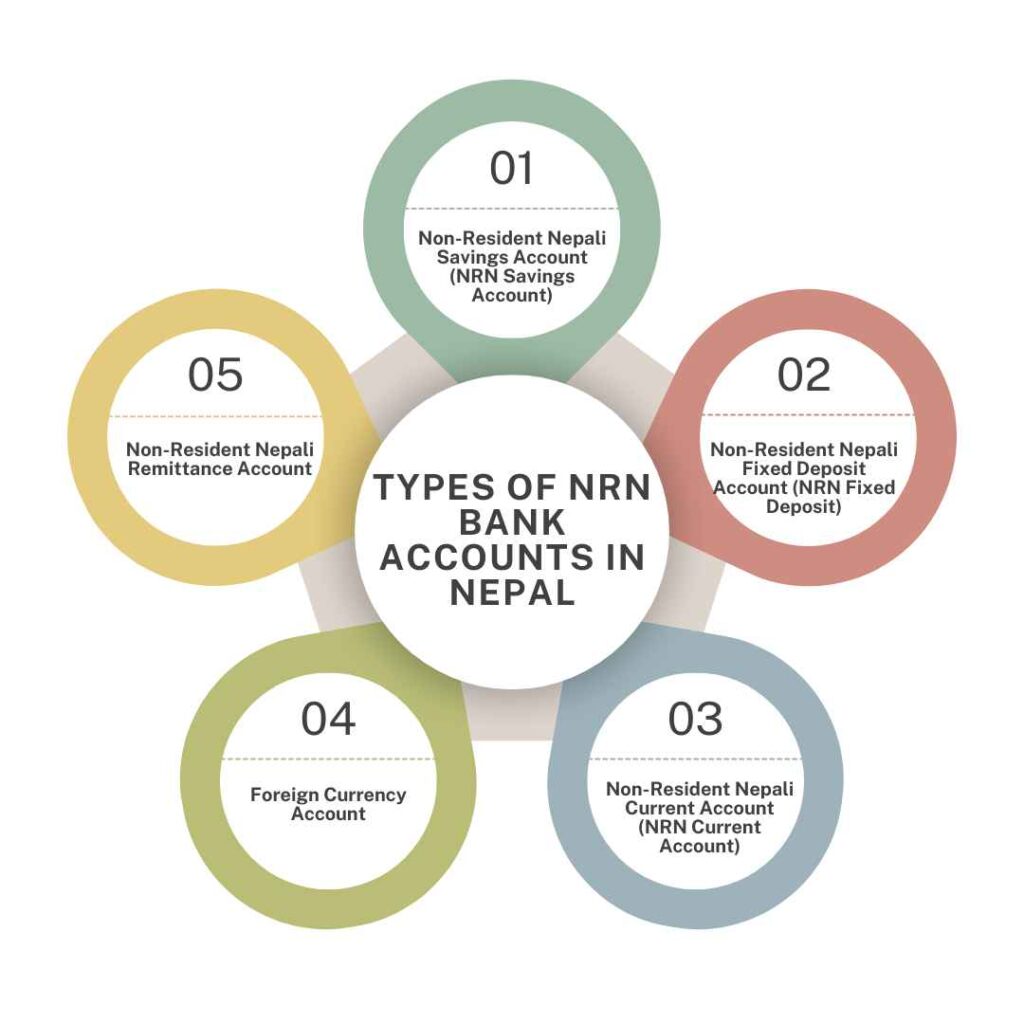
The NRN Savings Account is the most common, allowing NRNs to save money and earn interest. Fixed Deposit Accounts offer higher interest rates for longer-term deposits. Current Accounts cater to business transactions. Foreign Currency Accounts enable NRNs to hold funds in foreign currencies. The Remittance Account facilitates easy transfer of funds from abroad to Nepal. Each account type serves different purposes, providing NRNs with flexibility in managing their finances in Nepal.
What documents are needed for NRN accounts?
To open an NRN bank account in Nepal, the following documents are typically required:
- Valid passport
- Proof of NRN status (NRN card or other relevant documents)
- Proof of address in the foreign country of residence
- Recent passport-sized photographs
- PAN (Permanent Account Number) card, if available
- Completed account opening form
- Source of income declaration
- Copy of visa or residence permit of the foreign country
- Recommendation letter from a Nepali citizen (in some cases)
- Tax clearance certificate from the country of residence (for certain account types)
Banks may require additional documents based on their specific policies and regulatory requirements. It’s advisable to check with the chosen bank for their exact documentation requirements before initiating the account opening process.
Are there any fees for NRN bank accounts?
Fees for NRN bank accounts in Nepal vary depending on the bank and the type of account. Common fees include:
- Account opening fee
- Minimum balance maintenance fee
- Annual account maintenance fee
- Debit card issuance and renewal fee
- Online banking service fee
- Fund transfer fees (domestic and international)
- Foreign currency conversion fee
Some banks may waive certain fees for NRN accounts or offer special packages. The Nepal Rastra Bank regulates the maximum fees banks can charge, but specific fee structures differ among banks. NRNs should compare fee schedules of different banks to find the most cost-effective option. It’s also worth noting that some fees may be waived if the account maintains a certain minimum balance or meets other criteria set by the bank.
Can NRNs open accounts online in Nepal?
Currently, fully online account opening for NRNs is limited in Nepal. Most banks require physical presence and document verification for NRN account opening due to regulatory requirements and Know Your Customer (KYC) norms. However, some banks have introduced partial online processes:
- Online application submission
- Document upload through secure portals
- Video KYC for initial verification
Despite these advancements, NRNs typically need to visit the bank in person to complete the account opening process, sign documents, and provide original identification. The Nepal Rastra Bank is working on guidelines for fully digital account opening, which may be implemented in the future. NRNs planning to open an account should check with individual banks for their latest procedures and any online options available.
Are there foreign currency accounts for NRN?
Yes, NRNs can open foreign currency accounts in Nepal. These accounts allow NRN to hold and transact in foreign currencies without conversion to Nepali Rupees. Key features include:
- Available currencies: Usually USD, EUR, GBP, JPY, and others
- Interest-bearing accounts
- Facilitates international transactions
- Protects against currency fluctuations
Foreign currency accounts are regulated by the Nepal Rastra Bank under the Foreign Exchange Regulation Act. NRNs can use these accounts for:
- Receiving remittances
- Investing in Nepal
- Paying for goods and services in foreign currency
To open a foreign currency account, NRNs need to provide additional documentation proving the source of foreign currency funds. These accounts offer NRNs flexibility in managing their international finances while maintaining a connection to Nepal’s banking system.
Can NRN hold joint accounts in Nepal?
NRNs can hold joint bank accounts in Nepal, subject to certain conditions:
- Joint accounts with other NRN: Two or more NRNs can open a joint account.
- Joint accounts with resident Nepalis: NRNs can open joint accounts with close family members who are resident Nepalis.
Regulations for joint NRN accounts include:
- All account holders must meet NRN criteria
- Each account holder needs to provide necessary documentation
- Operating instructions must be clearly defined (single or joint operation)
- Compliance with Nepal Rastra Bank guidelines on NRN accounts
Joint accounts offer benefits like shared access to funds and easier estate planning. However, they also come with shared responsibilities and potential complications in case of disputes. NRNs considering joint accounts should carefully review the terms and conditions and understand the implications of joint ownership.
Is NRN ID required to open a bank account?
An NRN ID is not always mandatory to open a bank account in Nepal, but it significantly simplifies the process. The NRN ID, issued by the Non-Resident Nepali Association (NRNA), serves as proof of NRN status. Alternative documents that can be used include:
- Valid passport showing Nepali origin
- Citizenship certificate of Nepal (for those who have acquired foreign citizenship)
- Birth certificate proving Nepali parentage
While these documents can suffice, having an NRN ID offers several advantages:
- Streamlined account opening process
- Access to specific NRN banking products
- Easier compliance with NRN-specific regulations
Banks may have different policies regarding the necessity of an NRN ID. Some may require it for certain types of accounts or services. NRNs are advised to obtain an NRN ID if possible, as it facilitates various financial and administrative processes in Nepal beyond just banking.
How long does it take to open an account for NRN?
The time required to open an NRN bank account in Nepal can vary depending on several factors:
- Document preparation: 1-2 weeks
- Application submission: 1 day
- Bank verification process: 3-5 business days
- Account activation: 1-2 business days
Total estimated time: 2-3 weeks
Factors affecting the timeline:
- Completeness and accuracy of submitted documents
- Bank’s internal processes and workload
- Regulatory compliance checks
- Any additional verification required
Some banks offer expedited services for NRN accounts, potentially reducing the time to 1-2 weeks. To ensure a smooth process, NRNs should:
- Prepare all required documents in advance
- Choose a bank with experience in NRN accounts
- Respond promptly to any additional information requests
It’s advisable to start the account opening process well in advance of any urgent need for banking services in Nepal.
Are NRN accounts subject to tax in Nepal?
NRN accounts in Nepal are subject to certain tax considerations:
- Interest Income Tax: Interest earned on NRN accounts is subject to a withholding tax, currently at 5% for savings accounts and 15% for fixed deposits.
- Remittance Tax: Funds remitted from NRN accounts abroad may be subject to remittance tax, depending on the nature and purpose of the remittance.
- Capital Gains Tax: Any capital gains from investments made through NRN accounts are taxable as per Nepal’s tax laws.
- Double Taxation Avoidance: Nepal has agreements with several countries to avoid double taxation. NRNs should check if such an agreement exists with their country of residence.
- Tax Exemptions: Certain investments made through NRN accounts may qualify for tax exemptions or concessions under Nepali law.
NRNs should consult with tax professionals familiar with both Nepali and their resident country’s tax laws to understand their specific tax obligations. It’s important to note that tax laws can change, and NRNs should stay informed about current regulations.
What are the benefits of NRN bank accounts?
NRN bank accounts in Nepal offer several benefits:
- Financial Management: Easy management of assets and investments in Nepal
- Remittance Facilitation: Simplified process for sending money to Nepal
- Investment Opportunities: Access to Nepali investment markets
- Currency Flexibility: Option to hold accounts in Nepali Rupees or foreign currencies
- Repatriation of Funds: Easier process for moving funds in and out of Nepal
- Special Interest Rates: Often higher interest rates compared to regular savings accounts
- Dedicated Services: Specialized banking services catering to NRN needs
- Property Transactions: Facilitates buying, selling, and renting property in Nepal
- Business Operations: Supports NRN business ventures in Nepal
- Retirement Planning: Aids in planning for retirement in Nepal
These accounts serve as a financial bridge between NRNs and their home country, enabling them to maintain economic ties and participate in Nepal’s financial ecosystem while residing abroad.
Can NRNs access their accounts from abroad?
NRNs can access their Nepali bank accounts from abroad through various channels:
- Online Banking: Most banks offer internet banking services accessible worldwide
- Mobile Banking Apps: Smartphone applications for account management
- Phone Banking: Customer service hotlines for account inquiries and transactions
- Email Instructions: Some banks accept email instructions for certain transactions
- ATM Access: International ATM withdrawals using Nepali bank cards
- SWIFT Transfers: International fund transfers to and from NRN accounts
Features typically available:
- Balance checking
- Fund transfers (domestic and international)
- Bill payments
- Statement requests
- Investment management
Security measures for remote access include:
- Two-factor authentication
- Transaction limits
- SMS alerts for account activities
NRNs should inform their bank about their foreign residence to ensure uninterrupted access to online services. It’s also advisable to check with the bank about any restrictions or additional security measures for accessing accounts from abroad.
FAQs
1. Are accounts interest-free?
No, NRN accounts in Nepal are not interest-free. Banks offer competitive interest rates on various types of NRN accounts:
- Savings Accounts: Typically offer lower interest rates, ranging from 2% to 5% per annum
- Fixed Deposit Accounts: Higher interest rates, often between 6% to 10% per annum, depending on the deposit term
- Current Accounts: Generally non-interest bearing, focused on transaction facilities
Interest rates are subject to market conditions and Nepal Rastra Bank regulations. NRNs should compare rates offered by different banks to find the most favorable terms. It’s important to note that interest earned is subject to withholding tax in Nepal.
2. Can NRNs transfer funds easily?
Yes, NRNs can transfer funds easily to and from their Nepali bank accounts. Banks offer various transfer methods:
- SWIFT transfers for international transactions
- Online fund transfers for domestic transactions
- Remittance services for sending money to Nepal
- Mobile banking apps for quick transfers
Transfer limits and fees may apply, varying by bank and account type. NRNs should check with their bank for specific transfer policies and any documentation required for large transactions. The ease of fund transfers makes NRN accounts convenient for managing finances across borders.
3. Are accounts limited to savings?
No, NRN accounts are not limited to savings. Banks in Nepal offer a range of account types for NRNs:
- Savings Accounts
- Current Accounts
- Fixed Deposit Accounts
- Foreign Currency Accounts
- Investment Accounts
Each account type serves different purposes, from daily transactions to long-term investments. NRNs can choose accounts based on their financial needs and goals. Many banks allow NRNs to hold multiple account types simultaneously, providing flexibility in financial management.
4. Is KYC mandatory?
Yes, Know Your Customer (KYC) procedures are mandatory for NRN accounts in Nepal. KYC requirements include:
- Proof of identity (passport, NRN card)
- Proof of address in the foreign country
- Source of income declaration
- Recent photographs
Banks are required to conduct KYC checks as per Nepal Rastra Bank regulations and anti-money laundering laws. KYC information must be updated periodically. Failure to comply with KYC requirements can result in account restrictions or closure. NRNs should be prepared to provide and update KYC information as required by their bank.
5. Can minors open accounts?
Yes, minor NRNs can open bank accounts in Nepal, subject to certain conditions:
- The account must be opened and operated by a guardian
- Guardian must provide proof of relationship with the minor
- Minor’s birth certificate or passport is required
- Guardian must meet NRN criteria and KYC requirements
These accounts, often called “Minor’s Accounts” or “Guardian Accounts,” have specific operational guidelines:
- Limited transaction capabilities
- Conversion to regular NRN account upon reaching majority
- Special interest rates in some cases
Banks may have additional requirements or restrictions for minor NRN accounts. It’s advisable to check with individual banks for their specific policies regarding accounts for minor NRNs.
Can NRNs open a bank account in Nepal?
Yes, Non-Resident Nepalis (NRNs) can open bank accounts in Nepal, subject to specific regulations and requirements set by Nepal Rastra Bank.
What documents are required to open an NRN bank account?
Typically, NRNs need a valid passport, NRN card, proof of foreign residency, and completed bank forms to open an account in Nepal.
Can NRNs open a bank account in Nepal from abroad?
Generally, NRNs must be physically present in Nepal to open a bank account. However, some banks may offer online account opening services.
What types of NRN bank accounts are available in Nepal?
NRNs can open savings accounts, fixed deposit accounts, and foreign currency accounts in Nepali banks, depending on their specific needs.
What is the minimum balance required for NRN accounts?
Minimum balance requirements vary by bank and account type. NRNs should inquire with specific banks for accurate information.
Are there any fees associated with NRN accounts?
Account opening fees and maintenance charges may apply. NRNs should check with individual banks for detailed fee structures.
How long does it take to open an NRN bank account?
The time to open an NRN bank account varies, but it typically takes 1-3 business days after submitting all required documents.
Can NRNs operate their Nepali bank accounts from abroad?
Yes, NRNs can operate their Nepali bank accounts from abroad through online banking, mobile apps, and international fund transfer services.
What regulations govern NRN bank accounts in Nepal?
NRN bank accounts are governed by Nepal Rastra Bank regulations, Foreign Exchange Management Act, and Anti-Money Laundering laws.
